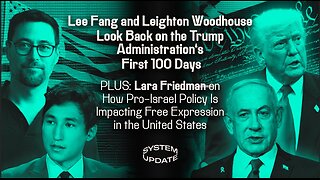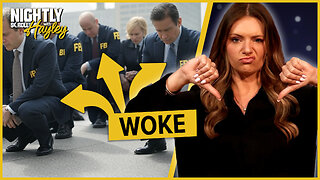Premium Only Content

Life, Liberty, and t̷h̷e̷ ̷P̷u̷r̷s̷u̷i̷t̷ ̷o̷f̷ ̷H̷a̷p̷p̷i̷n̷e̷s̷s̷ Property
Is Government Doing That? Interview #31 | Camila
Report here: https://asodhani.substack.com/p/igdt-31
---
Frankly, with all the speaking to random people we did, I’m pretty impressed with how spot-on so many of them are. Especially the younger people. Adam & Aaron, for example, had a mastery of practical statecraft that I find lacking in many Bill of Rights Warriors.
Let’s go into Camila’s main point.
The original draft of the Declaration of Independence, compiled by Thomas Jefferson, had Life, Liberty, and Property called out as the People’s unalienable God-given rights. Only at Ben Franklin’s urging did “Property” get replaced with “the Pursuit of Happiness.”
Where people go wrong, on both sides, is thinking that our founding fathers thought as a unanimous bloc.
No, far from it.
Yes, they did agree that independence from the British Empire was a must, but beyond that there were rife contentions on many topics. We’ll talk about one, related to this interview: Property.
The Left says, typically: “America is inherently a RACIST nation because the founders had slaves! America was built on the backs of slaves!”
The Right says, typically, “The founders were overwhelmingly AGAINST slavery and fought to have it abolished! Their economic situation just required it at the time!”
Both are true, depending on how you divide up the group known as American Founders. Both sides pick and choose information based on what their target market already believes.
The Constitution is a dual document, as I have written about prior. Its ratification both made slavery illegal and provided continuing protection for it. The Bill of Rights, at the time of the founding, was primarily a slaveholder protection device.
Today, the Bill of Rights is barely available to US Citizens, and the Constitution itself is hanging on by a thread.
Like Camila says,
“Companies are seen the same as people”
Citizens United v. Federal Election Commission, 558 U.S. 310 (2010), is a landmark decision of the Supreme Court of the United States regarding campaign finance laws and free speech under the First Amendment to the U.S. Constitution. The court held 5–4 that the freedom of speech clause of the First Amendment prohibits the government from restricting independent expenditures for political campaigns by corporations, nonprofit organizations, labor unions, and other associations.
You, a human being, in this terrain, have less rights and protections than multinational profit-seeking behemoths.
Why do you think it had to be this way?
“It is not the function of our Government to keep the citizen from falling into error; it is the function of the citizen to keep the Government from falling into error.”—Robert H. Jackson, US Supreme Court Associate Justice
-
 LIVE
LIVE
SpartakusLIVE
4 hours agoDuos w/ Rallied || A Spartan and a Dragon ENTERTAIN the MASSES
274 watching -
 20:09
20:09
Exploring With Nug
12 hours ago $1.28 earnedVanished After Driving Away… I Spent the Day Searching Lakes
23.9K2 -
 1:14:13
1:14:13
Glenn Greenwald
4 hours agoLee Fang and Leighton Woodhouse Look Back on Trump’s First 100 Days; Lara Friedman on New Laws Barring Israel Criticism | SYSTEM UPDATE #446
76.8K42 -
 LIVE
LIVE
ZWOGs
9 hours ago🔴LIVE IN 1440p! - DEATH STRANDING 1 - PLAYTHROUGH | DAY 4 | - Come Hang Out!
76 watching -
 LIVE
LIVE
Joker Effect
1 hour agoWhy aren't you trying to enjoy yourself? Live a little! go.mother.land/Joker
365 watching -
 LIVE
LIVE
Geeks + Gamers
1 hour agoMARIO KART WARS
192 watching -
 1:14:12
1:14:12
Right Side Broadcasting Network
5 days agoLIVE: Exclusive White House Special: President Trump's First 100 Days - 4/30/25
52.9K17 -
 1:02:30
1:02:30
BonginoReport
6 hours agoFBI Demotes Woke Agents Who Kneeled for George Floyd (Ep. 38) - Nightly Scroll with Hayley
102K101 -
 2:08:04
2:08:04
Tucker Carlson
4 hours agoMatt Walsh: Any country that can’t function without American aid has no right to exist.
96.3K164 -
 14:09
14:09
China Uncensored
8 hours agoThis Is China's LAST CHANCE Survive the Tariff War
27.5K9